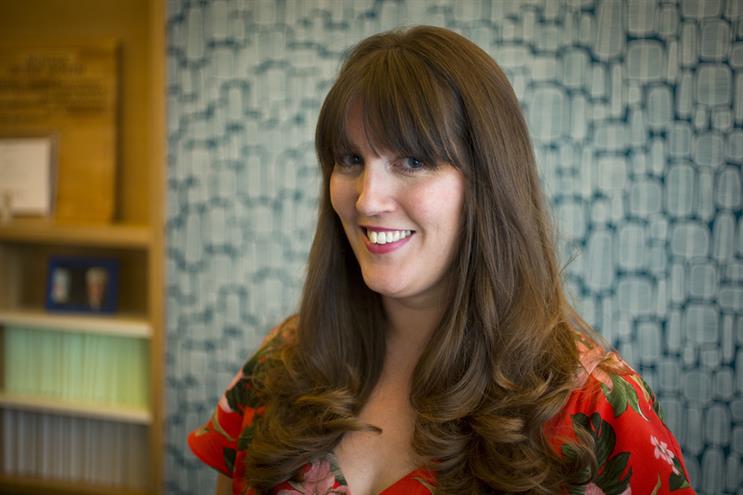"People should bring their whole selves to work." It’s a phrase that I have been guilty of trotting out many times, without really thinking or questioning what that means. It seems to be one of these latest workplace trends we quote hoping that when everyone takes off their masks and reveals their true selves, somehow our cultures will suddenly blossom and our diversity issues will disappear. But have we ever considered what "bringing your whole self" to work really means?
With the rapid increase in technology and our ‘always on’ working life, our work and personal life have begun to blur. Therefore, you would assume that the idea of having a ‘work self’ and ‘home self’ would merge closer to each other. Sadly, I don’t think this the case. If we ask ourselves honestly, we probably still all have a ‘work persona’. This is completely normal – we use different ‘masks’ so we can adapt and fulfil our desires to fit in. In the short-term, that feels like the easier option.
Busting the myth of the 'emotional' woman
There are always going to be fragments of ourselves that we will feel uncomfortable bringing to work. I, like many other women, have struggled since starting my career with being viewed and been told many times that I am "too emotional", or that I "care too much". I spent a long time criticising myself about this, trying to push my ‘emotional persona’ aside, trying to hold back that side of me for fear of looking weak or – if I’m honest – too feminine. In recent years, I have realised that my emotions are my driving force, they are what drive me to do my best work and to do the best for the people in our agency. In the list of many faults that I have, being accused of caring too much is something I am no longer going to lose sleep over.
Bringing your whole self to work doesn’t mean revealing your deepest darkest secrets to your colleagues. It’s about people feeling like they authentically know who you are and what you are about. To be able to do this effectively, you need to be able to be vulnerable, have the courage and honesty to highlight your faults, take risks and ask for help when you need it. This can feel unnatural and uncomfortable, but as someone who spent their entire twenties struggling with Imposter Syndrome, I think feeling comfortable with being uncomfortable is the only way you can genuinely be yourself and also be at your most productive.
What is the value of trying to be more of your real self at work, though? Well, it’s better for our mental wellbeing. It’s tiring constantly swapping personas. It’s also much better for business. A lot has been made of Google’s recent study into what makes for a high performing team, with ‘psychological safety’ coming out as one of the key elements that leads to a team excelling and over-performing. Psychological safety occurs when a team feels safe enough to be able to take risks and be vulnerable with each other. Once this environment is created, they will be able to think bigger and bolder and push boundaries.
To be vulnerable with someone you need to have a strong relationship built on trust. If you aren’t being your whole self and creating an authentic connection with someone, I don’t think this can exist. The very best managers I see in my agency are unashamedly themselves. They are honest about their failings, they give truthful developmental feedback and they celebrate both theirs and their teams’ strengths and achievements. The reason that employees are leaving organisations is not money or job title, but because of their leaders. In 2018, a cold, distant, robotic approach just won’t cut the mustard anymore.
The business benefits of being yourself
We have recently launched three new behaviours at m/SIX to support how we achieve our business and people goals: Pioneering, Honest & Energetic. We won’t be successful in truly living those behaviours unless we are able to bring our whole selves to work.
Pioneering is about pushing yourself forward to new ideas and approaches – something you can’t do properly if you’re too busy masking ‘the real you’. Honesty can’t come alive if you aren’t showing the full you, warts and all, and you can give up on being energetic if you are using your energy to over-censor yourself.
We are fortunate to work in a creative, dynamic and exciting industry that thrives on a diversity of personalities, but we need to get better at being ourselves. As a start we need to embrace our vulnerability. Being ‘vulnerable’ can be different to different people. I’m not suggesting standing up at your next all-agency meeting pouring out your heart with an emotional monologue but starting simply with asking yourself some questions.
Who are you at home? And who are you at work? If you are behaving very differently in both environments, then why? When you feel yourself holding back your opinions at work, ask yourself why this is? Is it because you feel you should be playing a different role, or is it because you don’t feel comfortable with being your true self at work? And if you don’t feel comfortable being your true self, then that might not necessarily be because of anything you’re doing, but more how your agency operates.
If you work in an environment where you are made to feel uncomfortable about showing your vulnerability, then that is not a place you’re going to be performing at your best or creating your best work. In our latest staff survey, 88% of our people at m/SIX said they felt comfortable being themselves at work. My focus for the next year is to help that other 12% feel comfortable to bring their whole selves to work, while continuing to be unashamedly my complete emotional self.
Siobhan Brunwin is head of people at m/SIX


